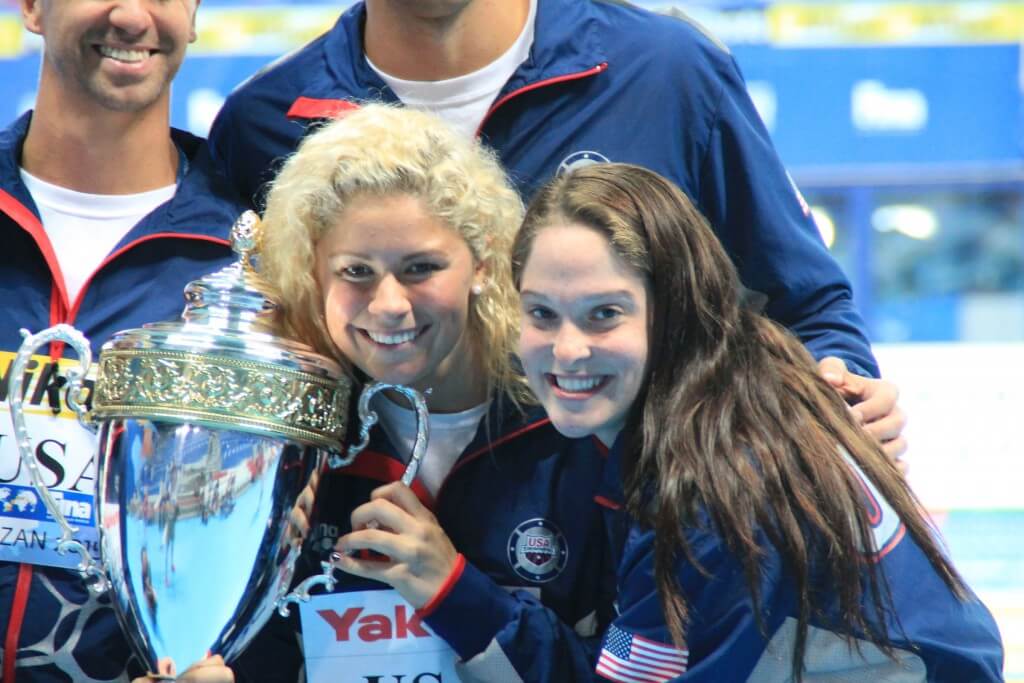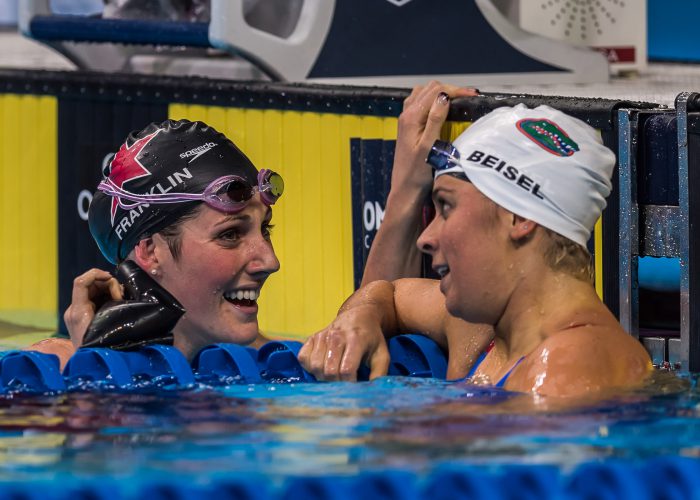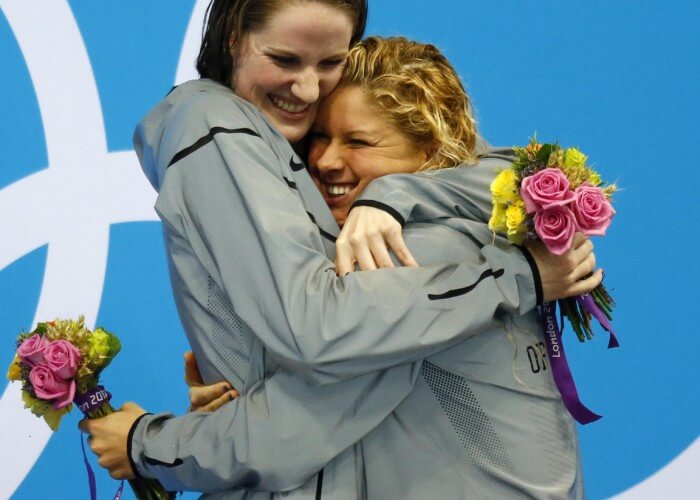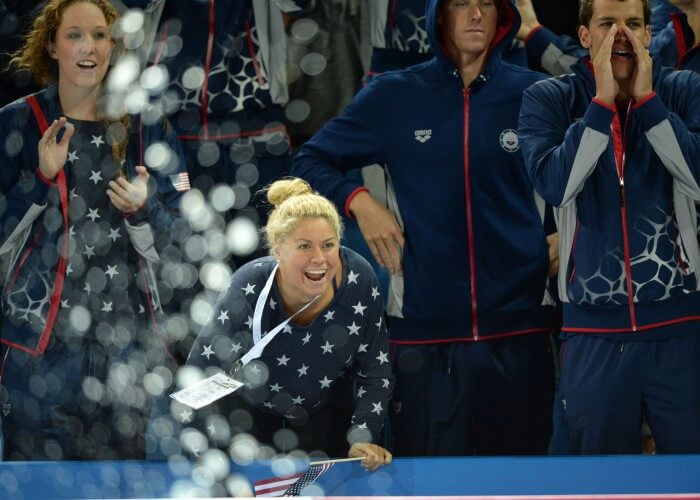Captain of Champions: Q&A with Elizabeth Beisel on What it Means to Lead

By Xonzy Gaddis, Swimming World College Intern.
Three time Olympian and medalist Elizabeth Beisel served as one of the co-captains of the 2016 Olympic team, leading the team to victory in nearly every event. Beisel now serves as a RISE mentor in her retirement from the sport, inspiring other athletes to be leaders in the sport.
With the experience Beisel had as a leader on teams, there was no doubt Beisel was meant to lead one of the strongest teams in the world. As a captain, Beisel led the team in winning and growing together, not simply as individuals.
Swimming World: How did you earn the position of captain of the United States Olympic team?

Photo Courtesy: Peter H. Bick
Elizabeth Beisel: I was voted captain by my teammates! I was lucky enough to be captain alongside Allison Schmitt, Cammile Adams, Michael Phelps, Anthony Ervin, and Nathan Adrian. Being named captain of the Olympic team is one of the greatest honors any athlete can receive, so it was a no brainer for me to go through with it.
SW: What experiences do you believe qualified you for the position of being a team captain?
Beisel: I believe I was qualified as a team captain because I had been on the National Team for over a decade. It was also my third Olympics, so I knew the ropes and how things would generally work. I had previously been captain of the 2015 World Championship Team, as well as captain of my team at University of Florida my Junior and Senior year. I believe all of these experiences helped shape me into a leader, and gave me the experience to help guide the rookies heading into their first Olympics.
SW: As team captain, what were your goals for the team and how did you go about pursuing them?

Photo Courtesy: Rob Schumacher/USA Today Sports
Beisel: As a captain, my goal for the team was to have the most successful Olympic Games in history. I was going to make that happen in any way possible. There are many styles of leadership, but the one that I lean towards is leading as a servant for others. I made sure every single person was taken care of before their races – whether that meant walking Hali Flickinger to the ready room or helping Kathleen Baker put on her suit before her final.
I was in the front row of the stands every single race to let the swimmers competing know that there was someone behind them the entire race, waving the American Flag like a maniac. I wanted people to feel included, safe, and confident. If someone had a bad race, I made sure they didn’t spread that to the rest of the team. You are only as strong as your weakest link, and for me, I believe I was on that Olympic Team to make sure everyone else could have their best Olympic Games possible.
SW: Did you ever feel at any point in time you failed as a captain?
Beisel: I have failed multiple times as a captain. Each time I fail, I learn from it. The most common issue I have with leadership is that I have a hard time standing up to people. When someone isn’t showing up on time, working hard, or is dragging people down, I tend to turn my head away from it rather than attacking the issue head on. The more an issue escalates and continues, the more detrimental it is to a team.
I have had to learn how to stand up to friends and teammates when I knew it would be extremely hard and uncomfortable. At the end of the day, leadership is about building your team up to be the best, and sometimes that means addressing the issues you see happening on a daily basis.
SW: How should a team captain be chosen?

Photo Courtesy: Delly Carr
Beisel: The captain title is nice, but I don’t think it’s necessary to determine who is and who isn’t a leader. A leader is someone who shows up on time, does everything right, admits when they’re wrong, and treats every team member as an equal. On a successful team, every single member is a leader in their own way. That’s why I don’t necessarily favor the “captain” term. While it does give a few people that definitive responsibility, it doesn’t mean that others can’t lead.
SW: What additional advice would you give to those on other teams about being a team captain?
Beisel: You do not have to be the fastest, most popular athlete to be a captain. At the 2016 Olympics, I came home empty handed. No medal at all. But I was still able to provide for my team in a different way, and that was leadership. As long as you are adding something to your team in a positive way, you have what it takes to be a leader.
-All interviews are conducted by the author and do not necessarily reflect the views of Swimming World Magazine nor its staff.




she has the coolest hair